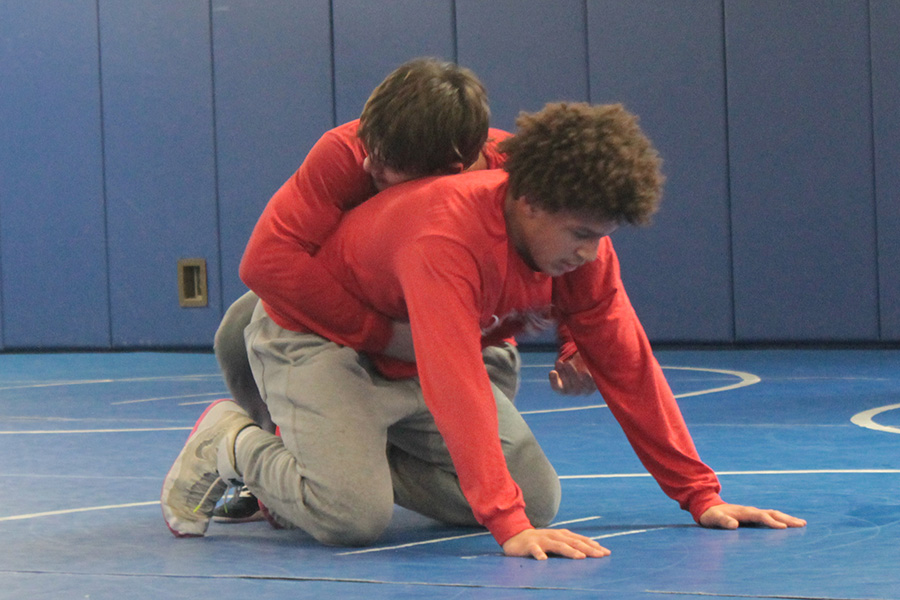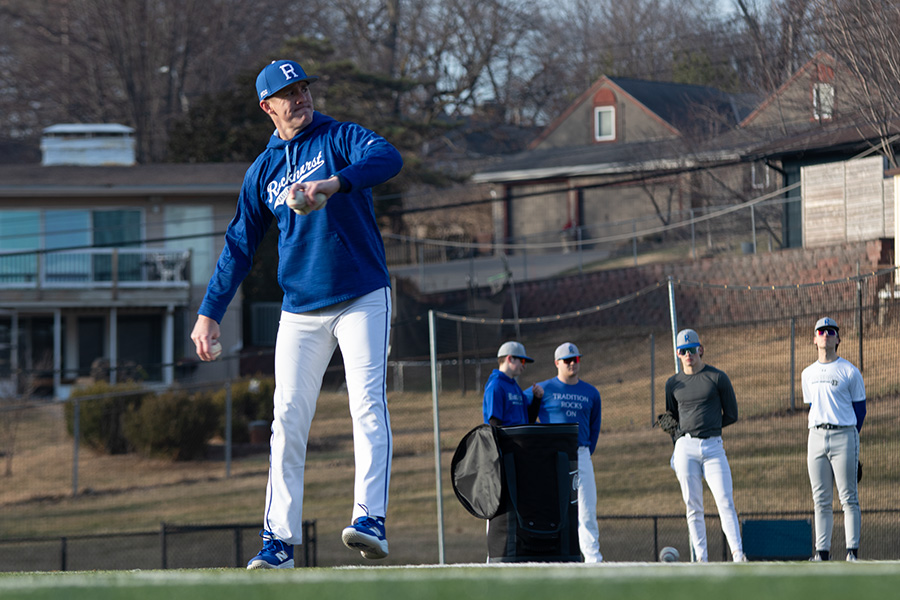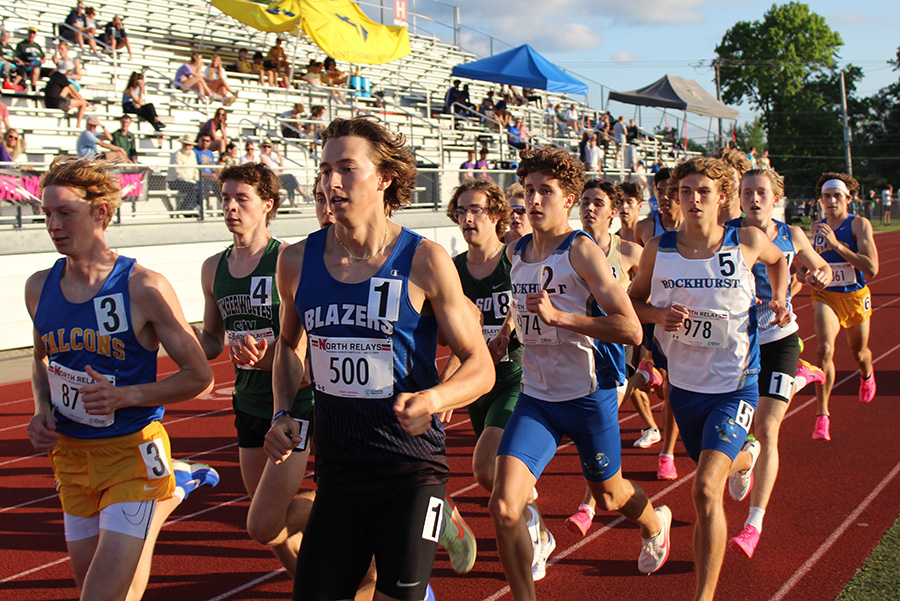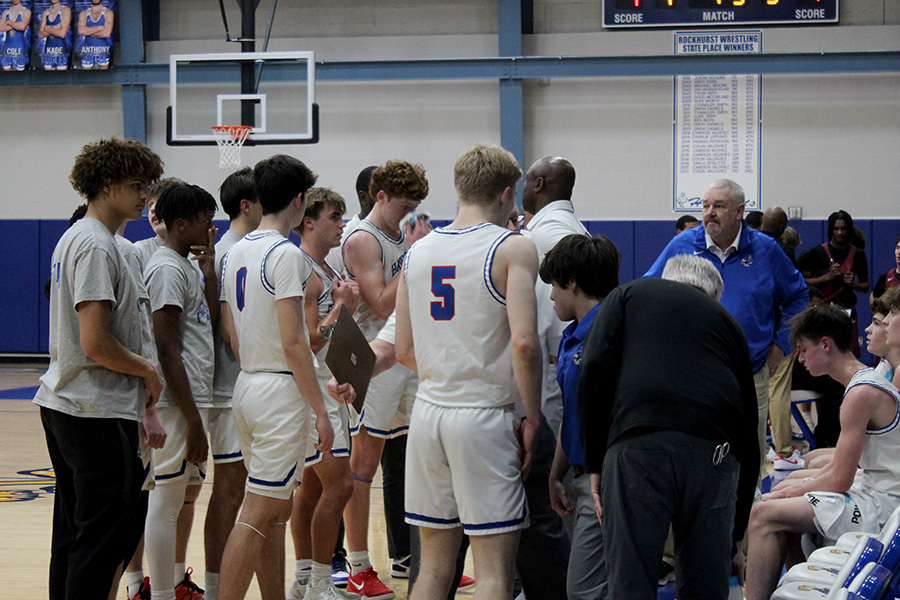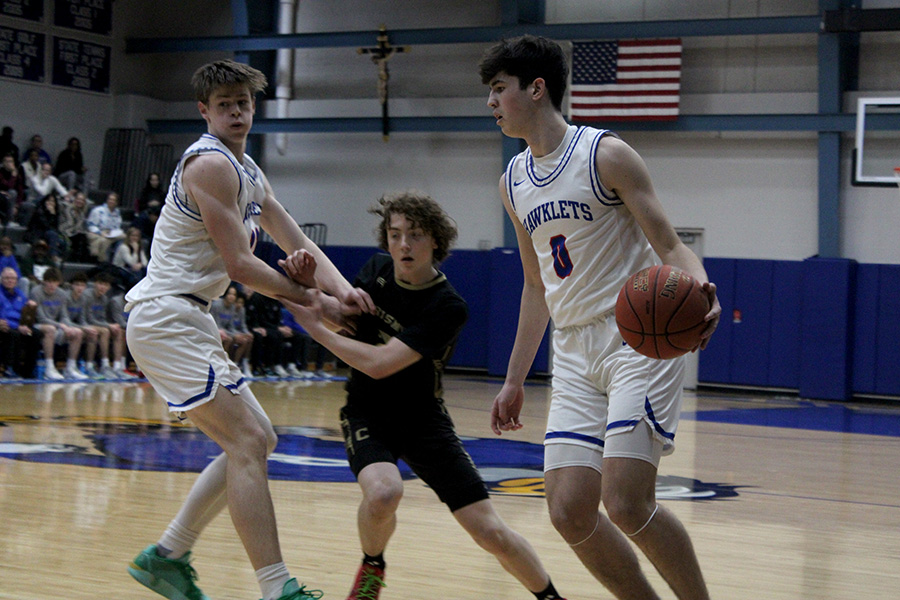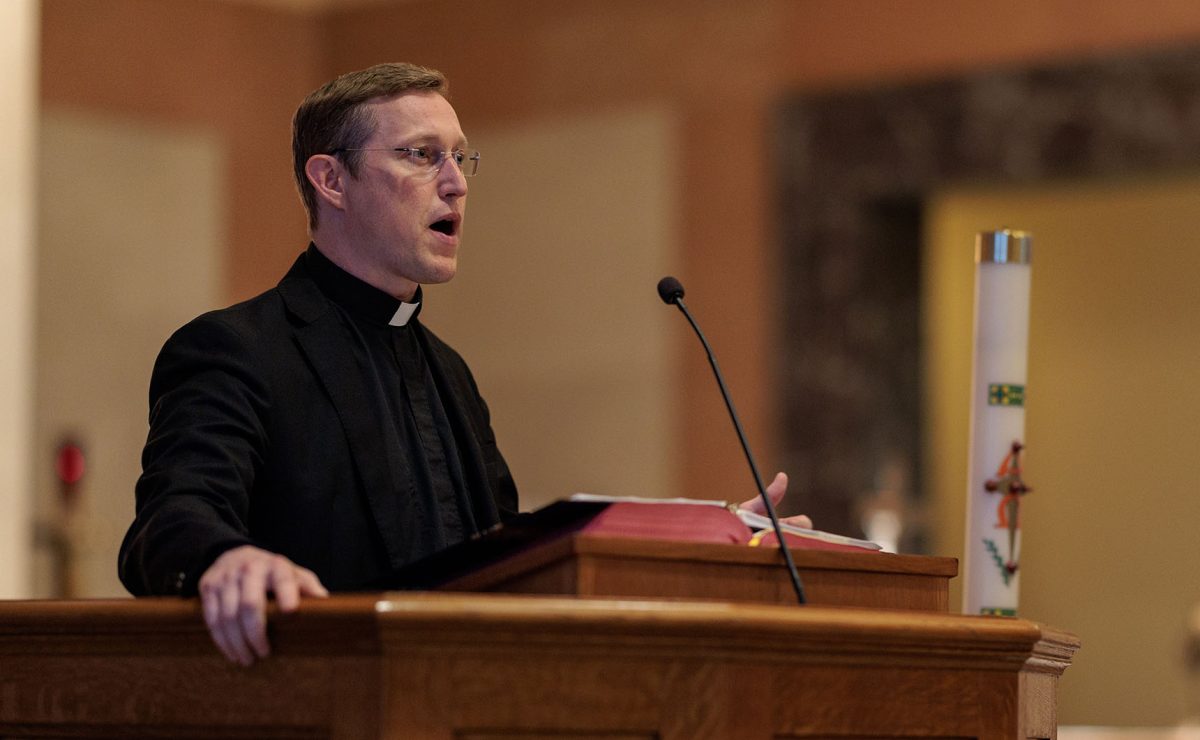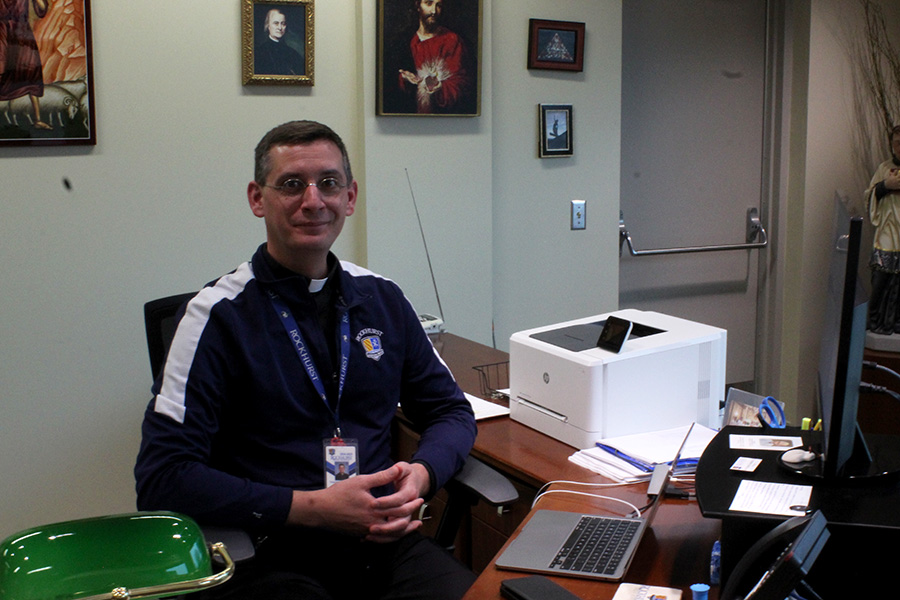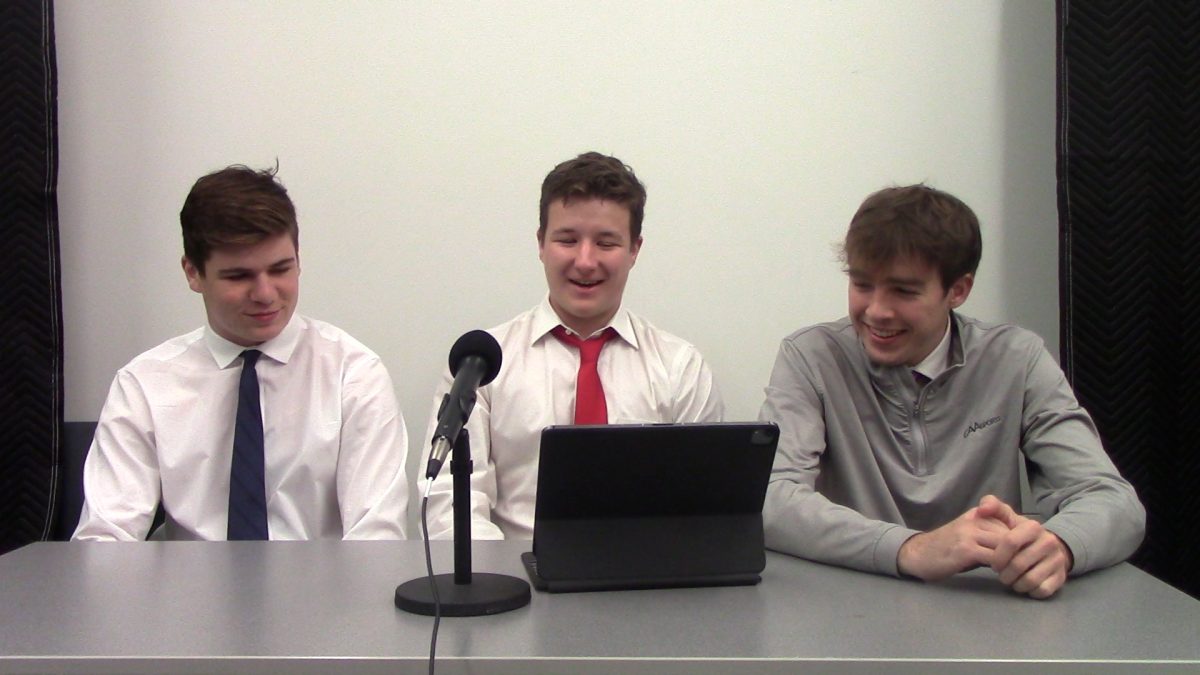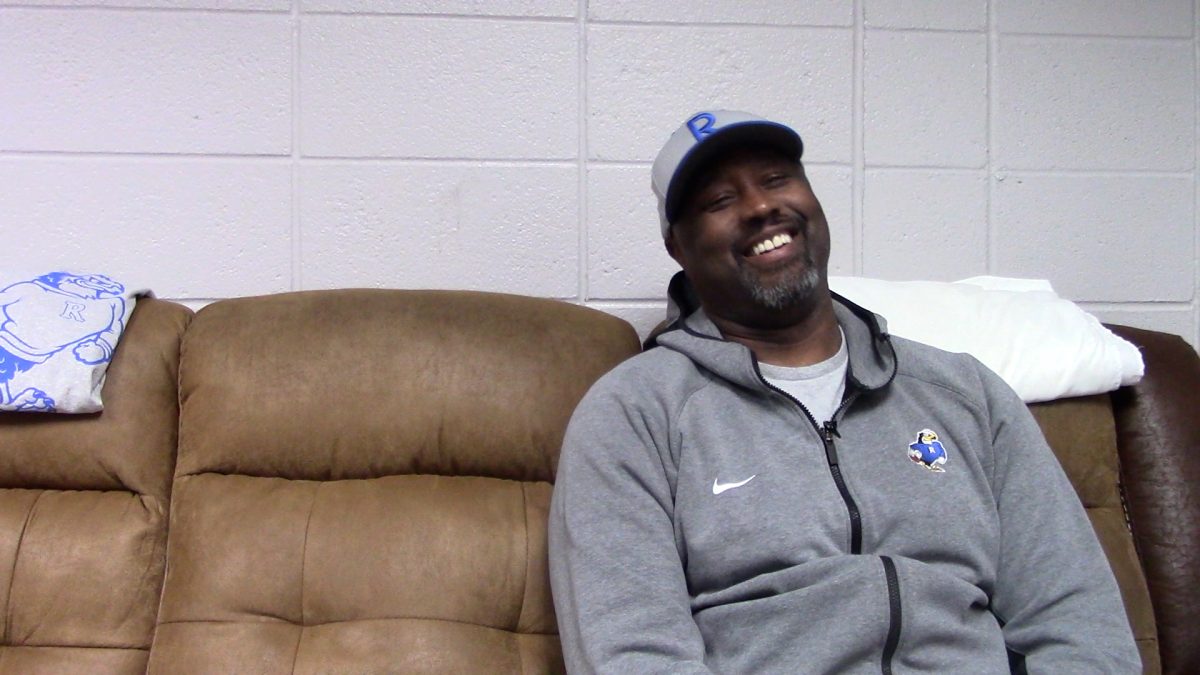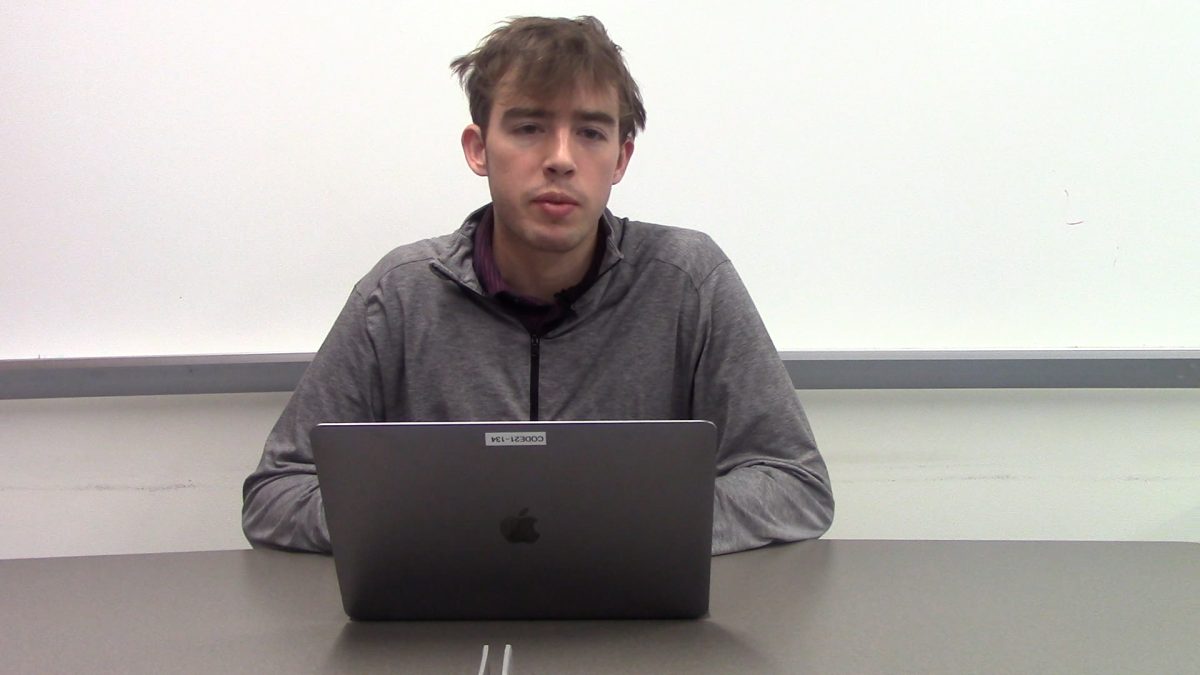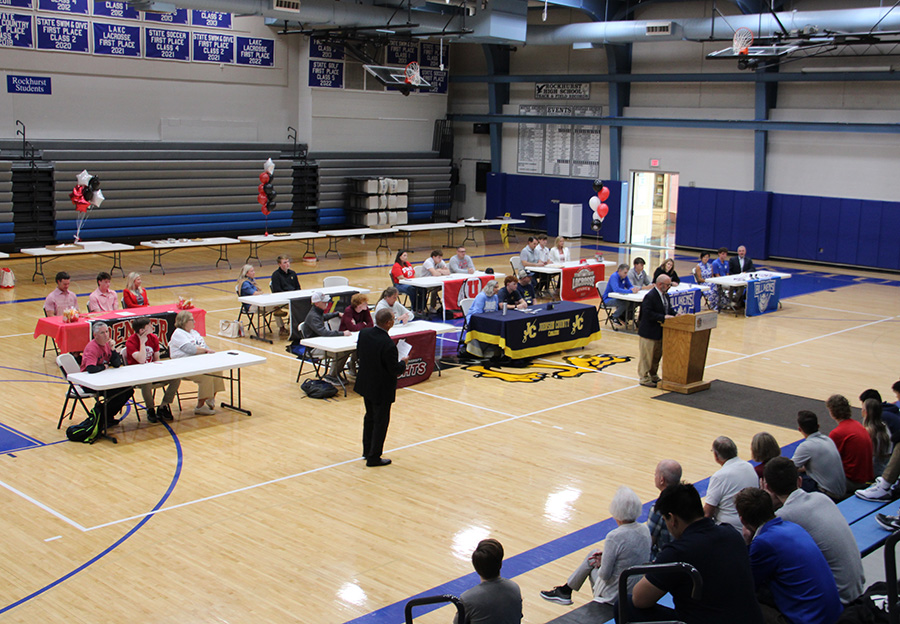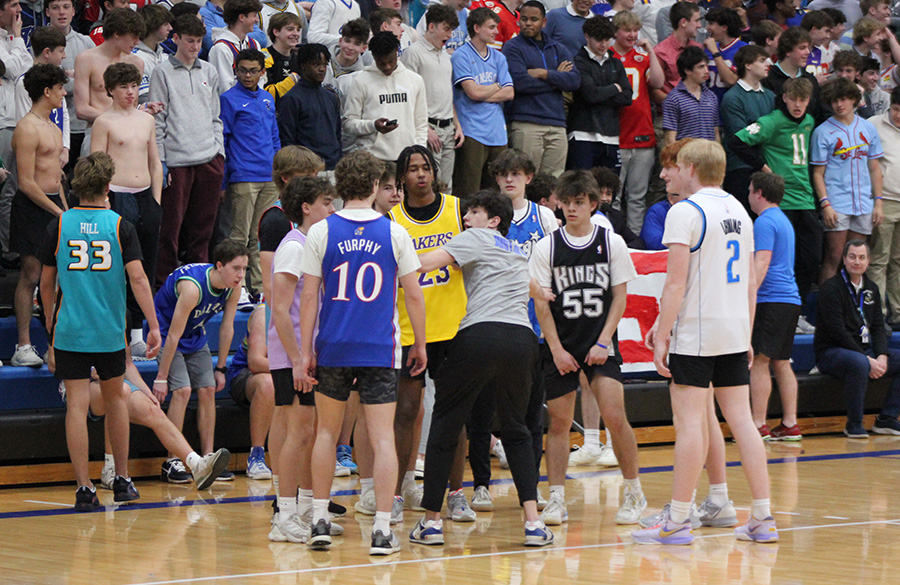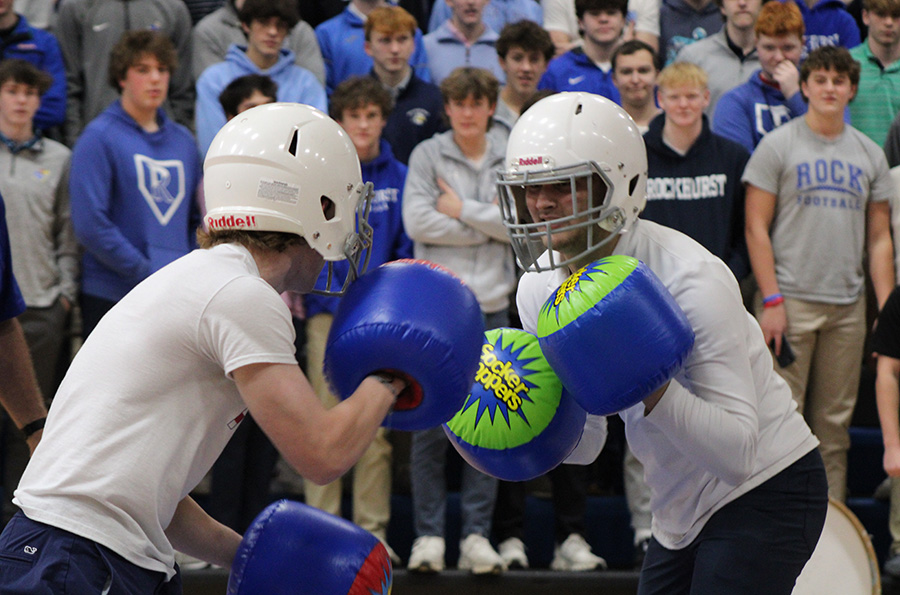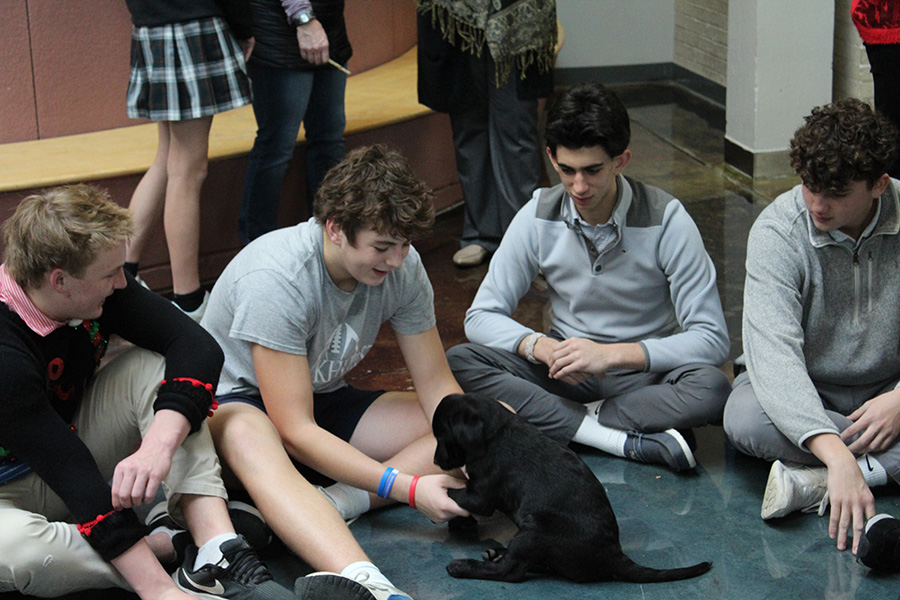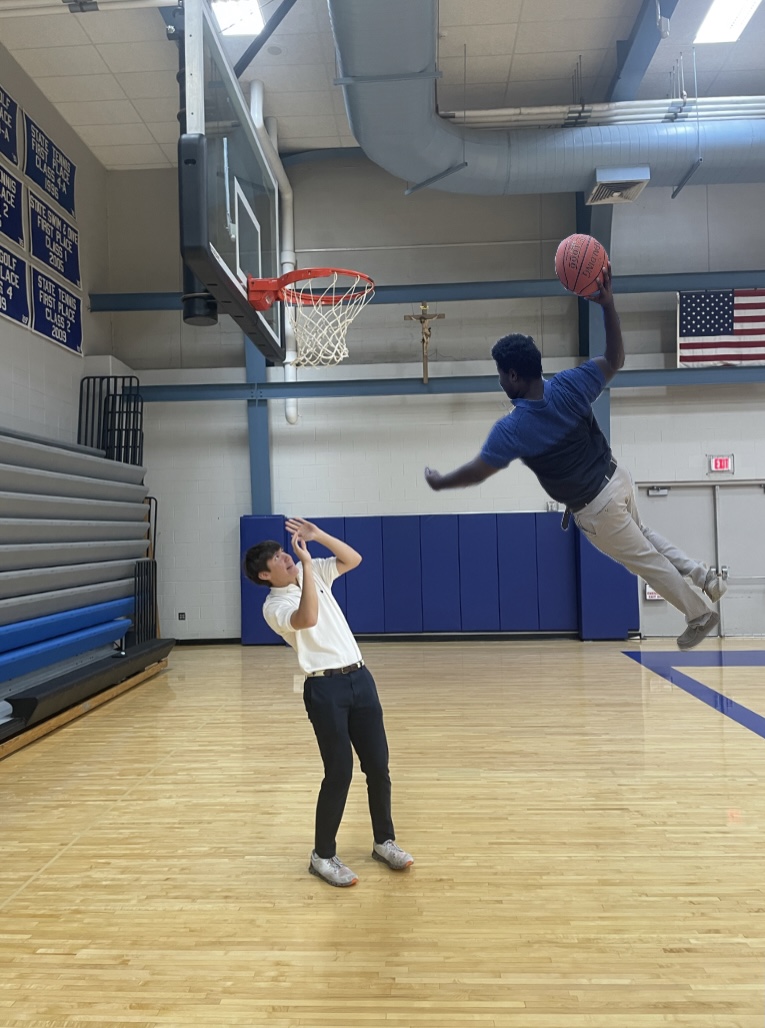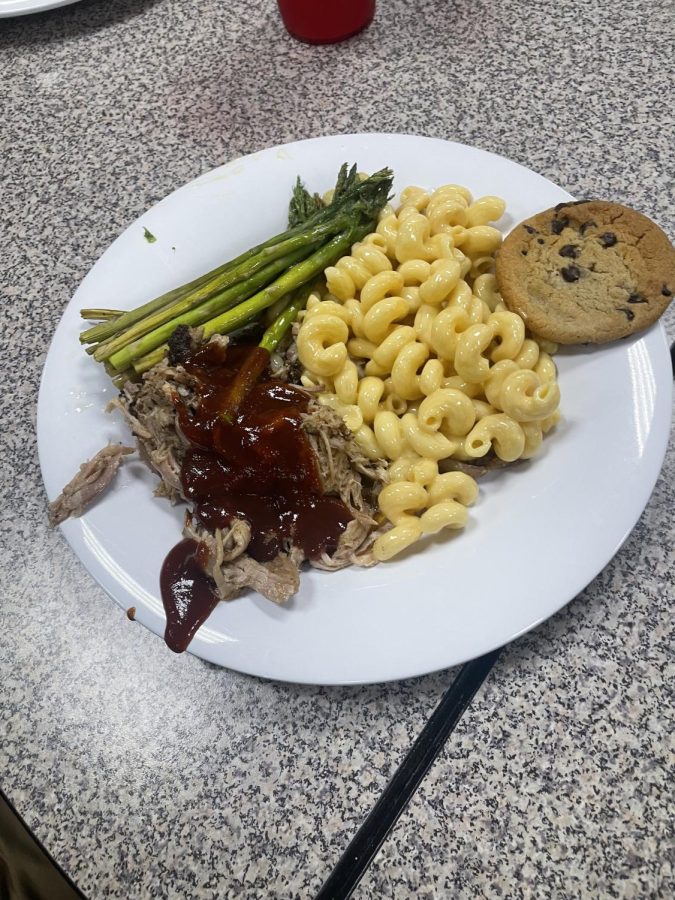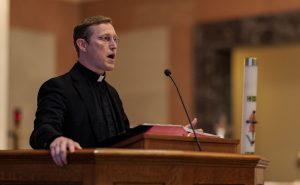A Man Was Put to Death: The Story of Kevin Johnson and Why Students Chose to Protest
December 8, 2022
On Tuesday, Nov. 29, 2022, at 7:40 pm, the state of Missouri executed Kevin Johnson for a crime he committed nearly two decades ago, at 19 years old. Rockhurst students and faculty members attended a protest organized by a local anti-death penalty organization on the cold November day of Johnson’s execution.
“[Rockhurst was] there to protest both for Kevin’s clemency, and we were also there to remind people that every life matters and that we should not be putting people to death that have been sentenced to life in prison,” said Carol Dougherty, counselor, and moderator of the Human Dignity Club.
As outlined and filmed by Missourians for Alternatives to the Death Penalty, Johnson grew up in an unstable home with a mother addicted to crack cocaine and a father in prison. His mother’s addiction, while she was pregnant with her son BamBam, caused the heart defect that would later result in the seizure he died from.
As a toddler, he and his older brother Marcus were placed into foster care with extended family members who abused and neglected them.
When he aged out of the foster care system at 18, Johnson was placed into a group home where he suffered physical and sexual abuse. The trauma he experienced throughout his childhood led him to attempt suicide more than once and landed him on anti-depressants and similar psychiatric medications.
Johnson was a star football player in high school, which caused him to suffer several concussions. During his trial, forensic neuropsychologist Dr. Dan Martell, who examined Johnson, said those concussions deteriorated Johnson’s frontal lobe, which, when impaired, “hinders good decision making.”
Although Johnson was a good student, his abusive home life hindered his academic performance, keeping him from graduating high school, according to MADP’s outline.
On July 5, 2005, officers arrived at Johnson’s grandmother’s home for reasons that have not been reported. While they were there, his brother BamBam began seizing. Johnson, as well as other witnesses, say that the officers on the scene reacted nonchalantly (pacing and walking over BamBam) with no urgency in applying emergency first aid. They even describe the officers blocking Johnson’s mother and grandmother from assisting BamBam.
It took the paramedics 18 minutes to arrive at the scene; BamBam was pronounced dead soon after arriving at the hospital. BamBam’s death caused Johnson’s mental state to spiral out of grief, according to MADP.
A few hours later, officers responded to a call about some boys shooting off fireworks, and Johnson noticed one of the officers, William McEntee, was one of the officers he believed was responsible for BamBam’s death. In his compromised mental state after losing his brother, Johnson gave in to his impulses, shooting and killing Officer McEntee, according to MADP.
Johnson had two trials. The first ended in a mistrial due to a split jury decision on a death sentence verdict. In that trial, Johnson’s attorneys included the mitigating circumstances of his case, such as the abuse he suffered as a child and the mental health issues he accrued as a result.
Former St. Louis County prosecutor Bob McCulloch personally tried Johnson’s second trial. McCulloch has a history with police killings, as his father was killed in the line of duty in the 1960s. During jury selection, McCulloch used a strategy attempting to limit the number of Black jurors. Such a maneuver violates the Batson Ruling, which made it illegal for states to exclude jury members based on race. McCulloch is currently being investigated for prosecutorial misconduct for his actions in this case, as well as others.
Johnson’s trial, which only included three Black jurors, ended with a verdict of first-degree murder and a sentence of death by lethal injection.
Johnson was the second person executed by the state of Missouri in 2022, following the execution of Carman Deck on May 3. They are two of the 52 men executed in Missouri since 2000.
A combined effort between the Rockhurst Student Diversity Union and Human Dignity Club “sought to spread awareness of the conviction that each person has inherent human dignity and the right to life,” said Sam Grilliot ‘23, a member of SDU.
“Early this semester, one of my teachers challenged a club at Rockhurst to be more consistently pro-life. I thought this would be an opportunity for SDU to hold Rockhurst to its mission,” said SGA Vice President Simon Connor ‘23.
Members of both clubs operated petition-signing tables before school and during lunches, organized a letter-writing workshop, held a movie lunch and discussion over Johnson’s documentary, and coordinated a group of students and faculty members to attend a protest on the corner of 39th and Troost Avenue in Kansas City, Missouri.
Highlighting the adversity and inequity Johnson faced throughout his life that contributed to the circumstances surrounding his crime, theology teacher and sophomore football coach James Gillcrist says that “you have to look at any criminal as holistically as possible. When it comes to sentencing, when you look at his life, he is a person that was born into a world in which he had no opportunities, in which there were clear signs and indicators…that there is something incredibly harmful that this young child is being exposed to and living through.”
Dougherty, moderator of the Human Dignity Club, added that “[as Catholics,] we certainly are pro-life…this [case is] a very uncomplicated one…it is simply we’re asking the government not to make a decision to take someone’s life.”
Hundreds of letters were sent to Governor Mike Parson asking for Johnson’s sentence to be commuted to life in prison. His case even made it to the supreme court. Still, it was denied an emergency stay of execution by Justice Brett Kavanaugh, who presides over the eighth circuit. Justices Ketanji Brown Jackson and Sonia Sotomayor dissented Kavanaugh’s decision.
Johnson is survived by his 20-year-old daughter, who wasn’t allowed to watch his execution due to a law prohibiting anyone under 21 from witnessing a state execution.
Although Johnson was executed by a system that Connor says “disproportionately targets the most vulnerable members of society,” he and other student advocates maintain that they will continue to fight for the changes in the legal system they see as unjust.
“While the failure of the system is discouraging, it also becomes more apparent that persistence is necessary when fighting injustice,” said Grilliot.



